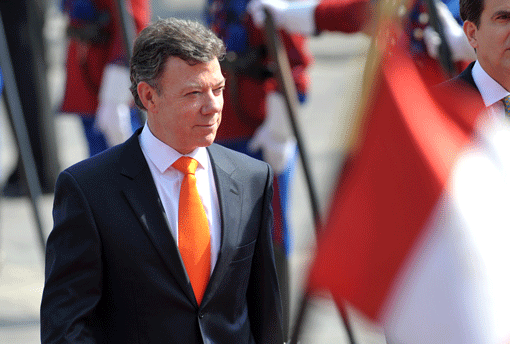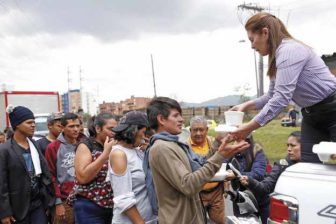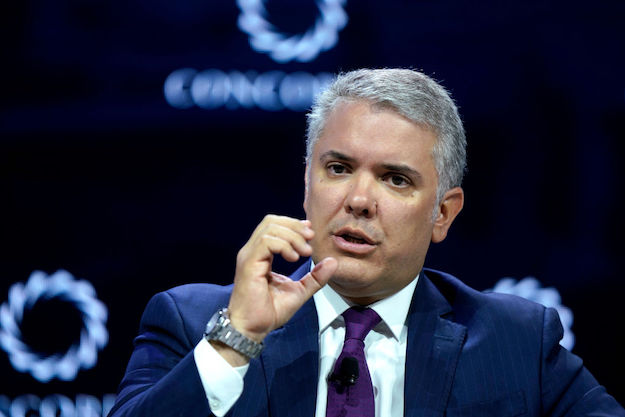Set to complete his first year in office on August 7, Colombian President Juan Manuel Santos takes a moment to discuss with AQ how the U.S. debt ceiling negotiations have adversely affected Latin America and why passage of the pending U.S.-Colombia free-trade agreement is “in the interest of the U.S.” An expanded version of this interview—addressing questions on security and Venezuela as well—will appear in the Fall 2011 issue of Americas Quarterly.
Americas Quarterly: What is your opinion about the free-trade agreement (FTA) with the U.S.?
Juan Manuel Santos: I hope the U.S. approves the FTA with Colombia. We want to maintain our very good relations with them and we are very happy that the U.S. is our biggest commercial partner and investment partner. But American products are being replaced in the Colombian market because other countries have free-trade agreements. If the FTA is not approved shortly, the U.S. will continue losing market share. So it is in the interest of the U.S., and of course in our interest, that the FTA should be approved as soon as possible.
AQ: What can you tell us about the economic subjects discussed at the UNASUR meeting in Lima, Peru, on July 28?
Santos: At the last UNASUR extraordinary meeting, we all expressed our concern about what is happening in the US about the debt ceiling, because the effects on the whole of Latin America have been very negative. On one side, the appreciation of our currencies is destroying jobs and on the other side, Latin America sits on 700 billion dollars in reserves and they lose value every time the dollar goes down, and we cannot simply sit down as bystanders and watch what is happening in the world from a financial point of view. We are trying to get together to see what kind of measures we can take in order to protect our economies from these negative circumstances.
AQ: Throughout your first year in office, flooding has displaced or affected nearly 7 percent of the population. What are the short-term plans for helping these people and recovering the predicted 2.5 percent drop in GDP that your government estimates this natural disaster will cost?
Santos: First of all, I don’t think it will be a 2.5 percent drop in GDP. On the contrary, when we start reconstructing what the floods damaged in terms of infrastructure, it might have a positive effect on our growth. Concerning the short-term plans, we are helping the affected people to look for a place to sleep, bringing them basic services and also finding alternative locations for the children to attend school, because many schools have been destroyed or flooded. In the long-term, we have created a fund to finance the reconstruction of public works to adapt ourselves to this new reality of climate change, because we have to be aware—and the world should be aware—that this type of phenomena will become more frequent because climate change is irreversible. That is a major challenge for us, but we are determined to follow through because our commitment is to make Colombia better than it was before the disaster.









